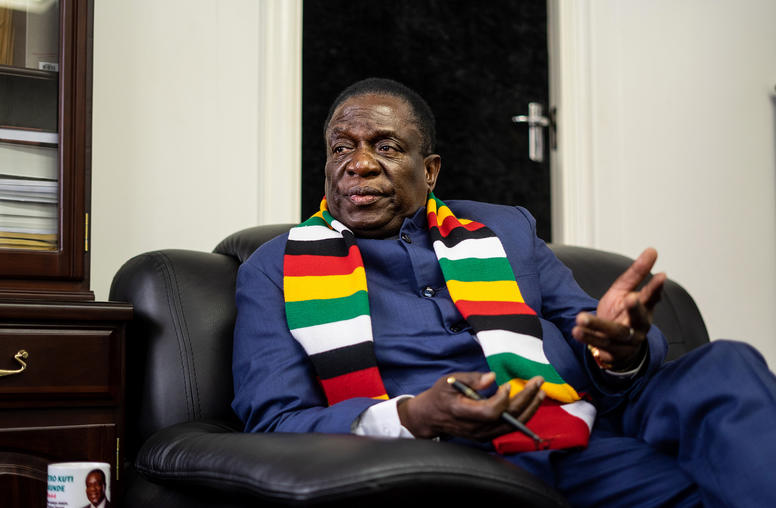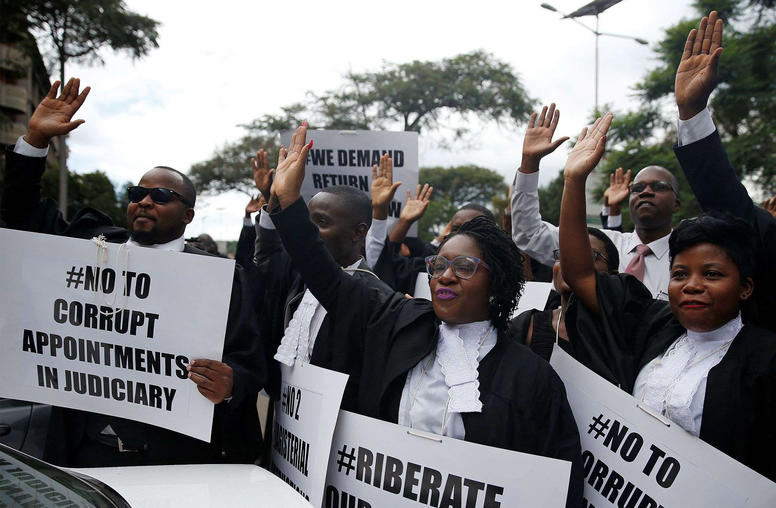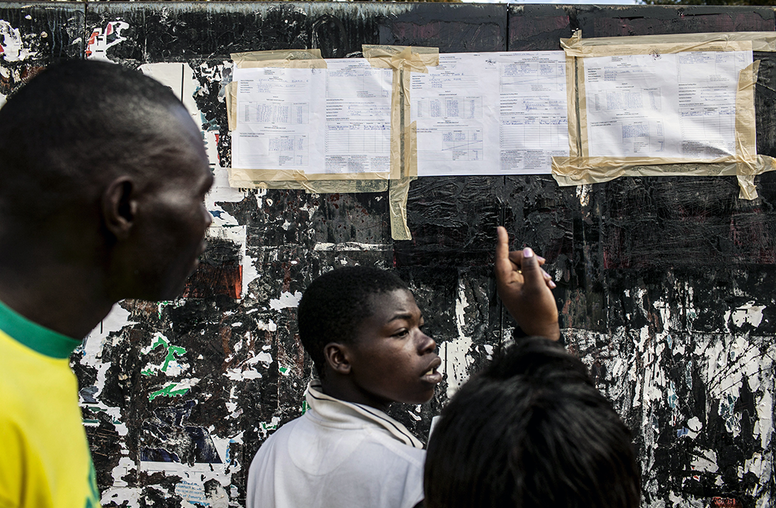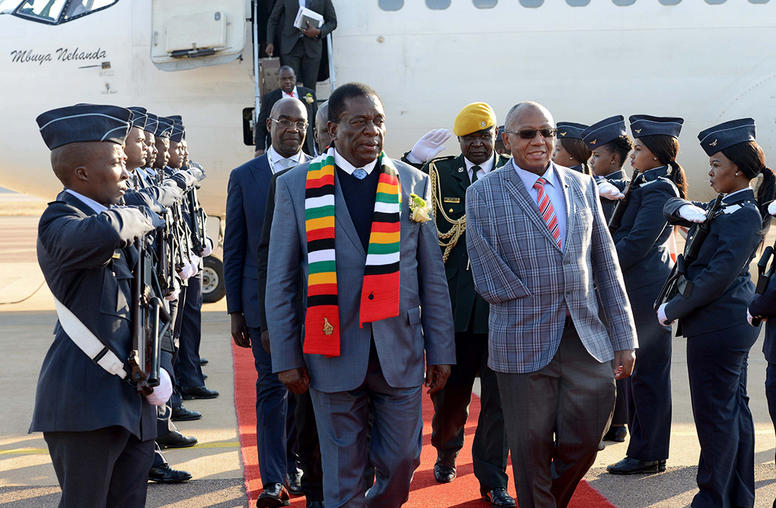The Diversity of Truth Commissions and Commissions of Inquiry
Over the past several decades, dozens of countries have established truth commissions and other bodies to investigate mass atrocities or systematic human rights abuse. Lessons learned from past truth-finding processes are invaluable to help address the legacies of human rights violations in countries transitioning to democratic regimes in the Middle East and North Africa and elsewhere.
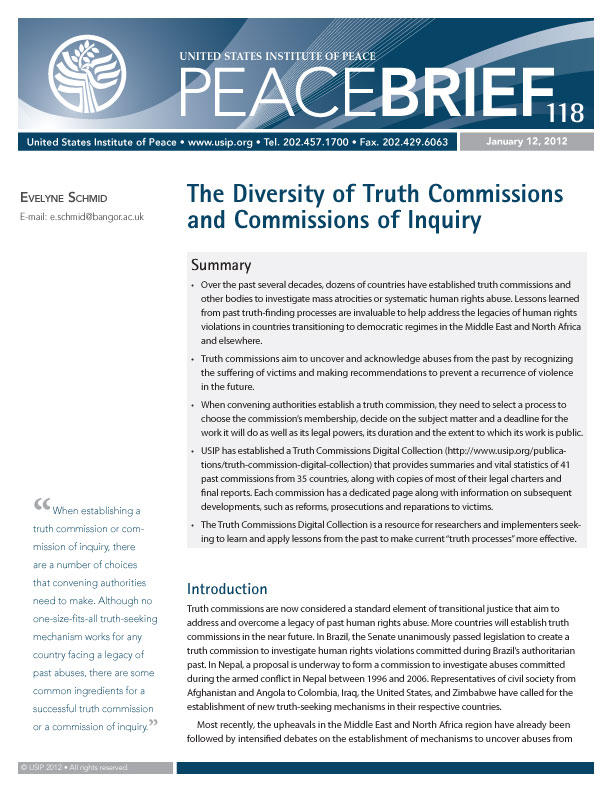
Summary
- Over the past several decades, dozens of countries have established truth commissions and other bodies to investigate mass atrocities or systematic human rights abuse. Lessons learned from past truth-finding processes are invaluable to help address the legacies of human rights violations in countries transitioning to democratic regimes in the Middle East and North Africa and elsewhere.
- Truth commissions aim to uncover and acknowledge abuses from the past by recognizing the suffering of victims and making recommendations to prevent a recurrence of violence in the future.
- When convening authorities establish a truth commission, they need to select a process to choose the commission’s membership, decide on the subject matter and a deadline for the work it will do as well as its legal powers, its duration and the extent to which its work is public.
- USIP has established a Truth Commissions Digital Collection that provides summaries and vital statistics of 41 past commissions from 35 countries, along with copies of most of their legal charters and final reports. Each commission has a dedicated page along with information on subsequent developments, such as reforms, prosecutions and reparations to victims.
- The Truth Commissions Digital Collection is a resource for researchers and implementers seeking to learn and apply lessons from the past to make current “truth processes” more effective.
